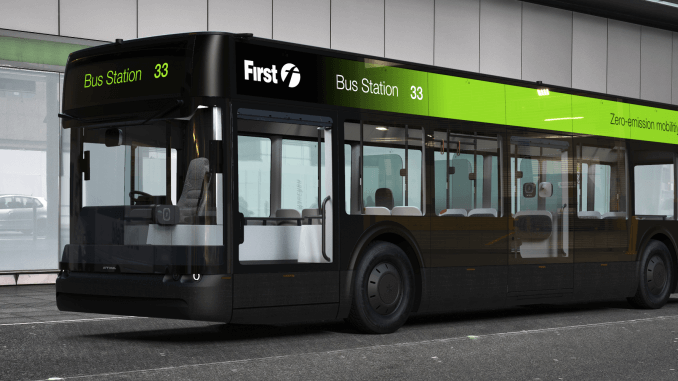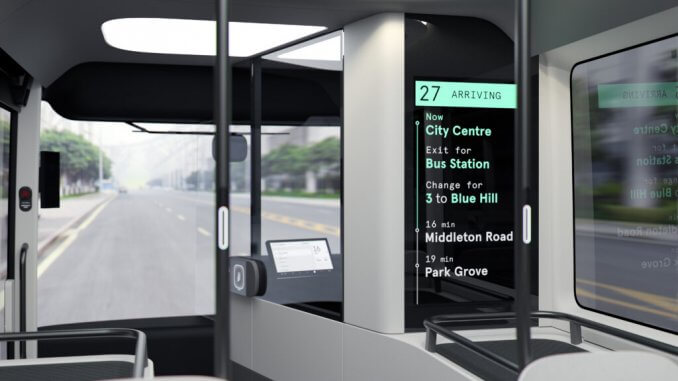Arrival’s zero-emission bus is to undergo route trials in the UK from autumn this year
Electric vehicle manufacturer Arrival, announced on Monday that it will begin trials of its zero-emission bus with First Bus. The trials, which will see Arrival buses navigating existing First Bus routes in the UK, will begin this autumn. The new partnership comes just seven months after First Bus announced its commitment to purchase no diesel buses after 2022 and to operate a fully zero- emission fleet by 2035.
First Bus already operates electric buses in Leeds, Glasgow, the country’s biggest electric Park & Ride fleet in York and a 99-strong fleet of biomethane buses in Bristol. Last month, the company also introduced the world’s first hydrogen-powered double-decker fleet in Aberdeen.
Arrival unveiled its electric bus last June, creating what it calls ‘a new and improved public transportation experience for all users – from the drivers and passengers to the engineers, cleaners and fleet owners – and reducing operating costs for operators, making the transition to electric vehicles more economically viable.’
The initial trial vehicle configurations will be a combination of familiar requirements and new innovative features, which will be activated throughout the trial and made possible by Arrival’s smart connected hardware and end-to-end fleet management solutions.
The single-deck Arrival bus features a single front door with a passenger seating capacity of 36 across the entire flat floor, allowing greater accessibility, as well as more usable standing space and ability for passengers to travel more comfortably. It is equipped with up to 310.8 kWh of energy storage capacity with the option of both an AC and DC charge.
The Arrival bus has been developed to not only have common suspension front and rear, but common wheels and tyres – the company estimates the bus to be up to 40% lighter than other battery-electric buses in the market today.
Arrival says its vertically integrated approach allows it to develop innovation at pace without the constraints of waiting for technology progression in the supply chain. It believes this approach enables a best-in-class product, with a superior Total Cost of Ownership (TCO) than both fossil fuel and electric vehicles currently on the market.
Janette Bell, Managing Director of First Bus said: “As leaders in sustainable mobility, we’re excited to announce our partnership with Arrival, helping us bring some of the most innovative zero emission vehicles on the market onto the UK’s streets for our customers and partners. We’re proud to be the first operator in the UK to trial Arrival’s electric buses and look forward to working together to accelerate the transition to zero emissions in our sector. Their ground-breaking technology is also expected to allow for improved customer service, and we’re looking forward to seeing how customers react to the new buses when they’re trialled later this year.”
“Today is an important day in the transition to a more sustainable, user focused transportation ecosystem and we are thrilled to be partnering with First Bus on this trial and for people to experience the Arrival Bus on public roads,” said Avinash Rugoobur, President of Arrival. “Cities around the world are pledging their commitment to a zero-emission transportation future and Arrival is providing them with the ideal product to help them achieve that in the Arrival Bus. We are working in partnership with operators and cities globally to support improvements to public transportation networks whilst creating vehicles that can be tailored to local needs.”
The announcement comes in the year the UN COP26 Climate Change conference will be hosted in Glasgow.
Arrival is a global business founded in 2015 and headquartered in London, UK and Charlotte, USA, with over 1,400 global employees located in offices across Germany, Netherlands, Israel, Russia, and Luxembourg. The company is deploying its first two Microfactories in South Carolina, US and Bicester, UK in 2021.



